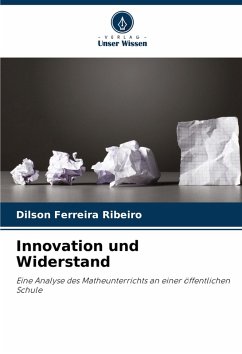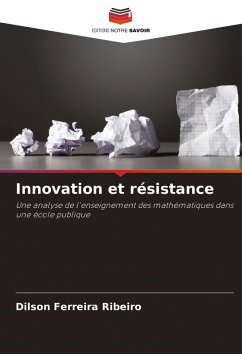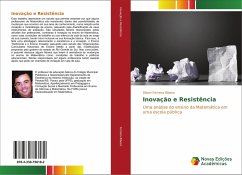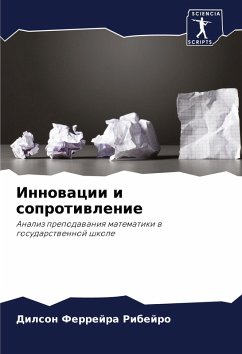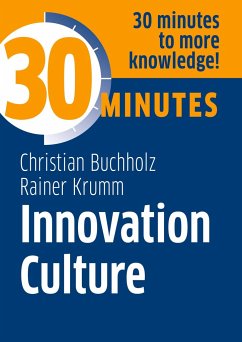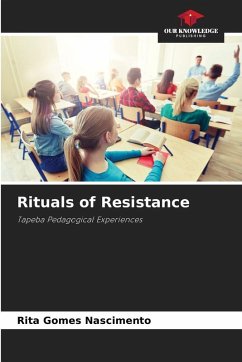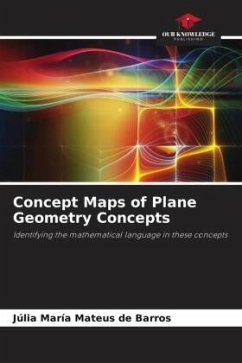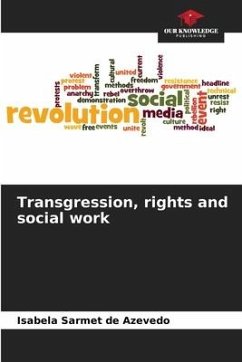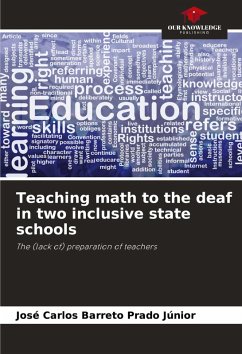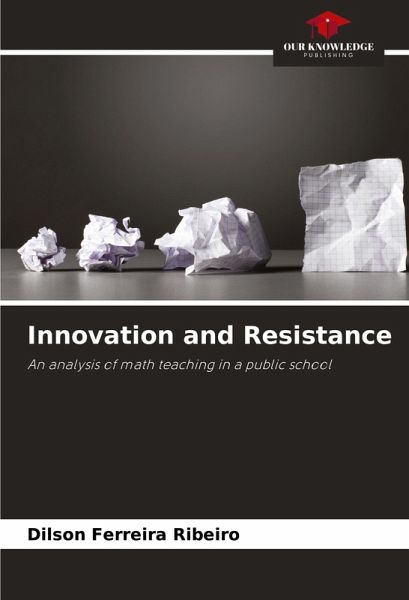
Innovation and Resistance
An analysis of math teaching in a public school
Versandkostenfrei!
Versandfertig in 6-10 Tagen
33,99 €
inkl. MwSt.

PAYBACK Punkte
17 °P sammeln!
This work develops a study that allows us to understand why some math teachers are resistant to the possibilities of changes that occur in their area of knowledge, in a relationship between innovation and teaching methodology, including the diversification of their assessment instruments. Factors responsible for teachers' attitudes against innovation in math teaching are studied, such as their working conditions or their experience of the classroom throughout their careers, including their basic education. To this end, an approach is made relating resistance and innovation, Traditional Teachin...
This work develops a study that allows us to understand why some math teachers are resistant to the possibilities of changes that occur in their area of knowledge, in a relationship between innovation and teaching methodology, including the diversification of their assessment instruments. Factors responsible for teachers' attitudes against innovation in math teaching are studied, such as their working conditions or their experience of the classroom throughout their careers, including their basic education. To this end, an approach is made relating resistance and innovation, Traditional Teaching and Innovative Teaching, going through the study of the National High School Curriculum Organizations based on the modifications proposed by the government of the state of Rio Grande do Sul. In the conclusions, it is possible to highlight some factors that lead to resistance to changes in the teaching of mathematics, such as: working conditions and educational policies; factors responsiblefor some teachers having an aversion to what can be called innovation in the classroom.





